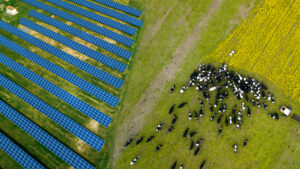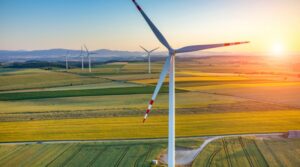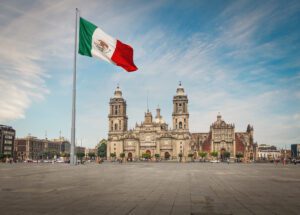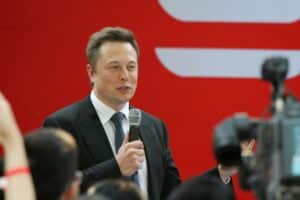Farmers without solar panels could lose out on £1bn as Government weighs up clampdown

Farmers without solar panels could be missing out on up to £1bn over the next two years, according to new analysis from the Energy and Climate Intelligence Unit (ECIU).
Solar panels have enabled farmers to sell energy they generate themselves to cut their own bills.
However, the vast majority of England’s farms do not have solar panels – with only 28 per cent having the renewable power source on their fields.
ECIU has calculated that if the remaining 78 per cent had followed their counterparts, energy savings and revenues could have almost balanced out the increase in fertiliser costs over the next two years.
This would have provided an estimated saving of up to be £1.1bn.
While gas costs are expected to remain historically elevated for at least the next two years, other income streams such as like renewables may be essential to some farm businesses surviving.
In the second quarter of 2022, farmers paid on average 98 per cent more for gas than in the first three months of 2021, and 45 per cent more for electricity.
Farms with renewables, such as solar panels, wind turbines and small hydroelectric plants, can earn extra income through power purchase agreements by either selling excess energy back to the grid or by leasing their land to energy generators.
Solar panels on agricultural sites would also mean the Government cutting hundreds of millions of pounds on its Energy Bill Relief Scheme support package for businesses’ energy bills.
The latest report from ECIU comes amid sustained speculation the DEFRA Secretary Thérèse Coffey os set to extend the de facto ban on solar farms in England to more farmland.
It is understood that Coffey is considering extending restrictions to solar developments to cover over 40 per cent of farmland.
Farmland is graded 1-5 for proposed developments – with the higher numbers (4-5) referring to poor quality land eligible for development and lower numbers defining high quality land essential for food security (1-3).
Currently, land graded 1-3a is ineligible, with grades 3b-5 considered suitable for development, but Downing Street is considering plans to make 3b ineligible for new sites to ensure food security.
Most proposed ground-mounted solar is currently put on Grade 3b land, which is typically less isolated and hilly for installations and transmissions.
Solar panels currently cover around 0.08 per cent of total land across the UK, or 0.1 per cent of UK farmland, only half the size of the Isle of Wight.
Matt Williams, climate and land programme lead at ECIU said: “Farmers are being hit by a double whammy of rising energy costs due to the surge in the gas price, and record prices for synthetic fertilisers which are made using gas.
“On top of that many are losing income as crops fail due to extreme weather driven by climate change. Some are choosing to leave the industry altogether as a result.”
Robbie Moore, Conservative MP for Keighley and Ilkley, added: “As gas prices rocket some farmers’ energy bills have gone through the roof. One of the best solutions is to have more renewables on farms. As long as care is taken to avoid land that’s needed to produce food they can help cut bills, bring in extra income, and achieve net zero.”




